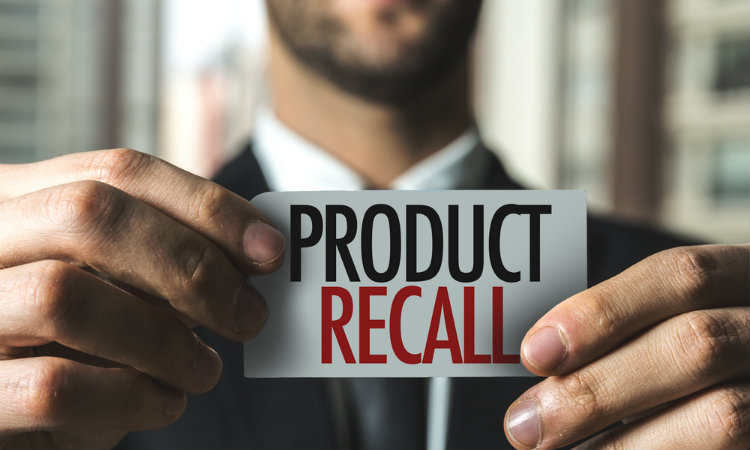
Unfortunately, in recent years, drug and product recalls have become more common. Why? What happens and how does the process work? Who is responsible for making sure these products are adequately tested before hitting the market?
Questions? Our knowledgeable staff is available at (877) 284-6600.
The Food and Drug Administration (FDA) has jurisdiction over food, drugs, cosmetics, medical devices and other products and serves as a monitor over product recalls. The organization’s mission is in protecting the public health by ensuring the safety, efficacy, and security of human and veterinary drugs, biological products, and medical devices.
The FDA’s responsibilities in product recalls generally include:
This FDA Consumer Update video highlights the agency’s involvement in product recalls from the moment the agency is notified to successful completion of the recall.
Unfortunately, by the time a recall is initiated, injuries due to the defect may already have occurred.
Our knowledgeable staff is available at (877) 284-6600.
So, what happens when an FDA-regulated product (such as a hip replacement device) is found to be either defective or potentially harmful?
To protect the public, the product should be removed from the market until the defect can be corrected. This is typically done as a product recall, which can be initiated by the company itself or by the FDA.
A product recall means a firm’s removal or correction of a marketed product(s) that the FDA considers to be in violation of the laws it administers and against which the agency would initiate legal action.
A defect can be discovered several ways. For instance, the company that manufactures the product may discover the problem and tell the FDA or the FDA may:
Once a defect has been identified and a recall initiated, information about product recalls gets posted on the FDA’s website. All recalls go into the FDA’s weekly Enforcement Report, which lists each recall according to its classification and with any specific actions taken by the recalling firm.
When the recall involves a serious hazard, the FDA typically uses a broader distribution network, such as press conferences, press release and other media updates to alert the public.
While the FDA has the authority to request a company recall a product, it actually has no authority under the Federal Food, Drug and Cosmetic Act to order a recall.
Most recalls are typically voluntary; however, if a manufacturer refuses to recall a device, the FDA can obtain a court order to have the product taken off the market.
There are three classifications for product recalls that are based on the order of severity of the injuries that may be caused.
Class I recalls are the most urgent because they have the potential to be the most harmful. The FDA defines these recalls as: “dangerous or defective products that predictably could cause serious health problems or death.”
With Class I recalls, the FDA typically develops a plan that is specific to the manufacturer and the product involved, making sure that all the affected items are removed from the market.
Class II recalls are defined by the FDA as “products that might cause a temporary health problem or pose only a slight threat of a serious nature.” You might think of this more as something that is more preventative in nature but that still has health and safety risks involved.
The FDA works with the manufacturer to inform the public about the recall, helping to ensure the items are removed from the market as quickly as possible.
Class III recalls are the least serious and are unlikely to cause harm, “but that violate FDA labeling or manufacturing laws.”
There are several hip implants that have been the subject of adverse event reports; some devices have been recalled and taken off the market. Manufacturers to be aware of include:
The attorneys and legal team at Nash & Franciskato Law Firm in Kansas City are dedicated to representing people injured by defective products. Powerful corporations or complex cases do not intimidate us.
Our attorneys use our extensive resources to research and investigate every aspect of your situation. Our law firm has a solid reputation with a network of professionals who can provide dependable expertise useful in building your case for the compensation you deserve.
If you or a family member is suffering adverse effects from the use of a defective product, contact our legal team in Kansas City today for your free, no-obligation case evaluation. Your health may be at stake, and our lawyers want to help.
Past results afford no guarantee of future results and each case is different and is judged on its own merits. The choice of a lawyer is an important decision and should not be based solely upon advertisements.